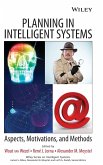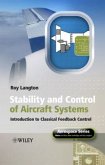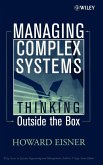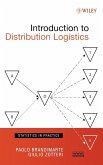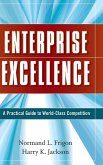The Serendipitous Path to Effective Problem-Solving and Planning for Complex Systems
This innovative book enables you and your organization to pursue goals and achieve success in ways that you might never have imagined. It does not prescribe a rigid methodology and plan. Instead, the author sets forth a process known as Human-Centered Design, which focuses on enhancing the abilities and overcoming the limitations of people within organizations. This process enables you to move forward and, at the same time, be on the alert for and recognize serendipitous events that enable you to solve complex systems problems in unexpected ways in order to meet and surpass your goals.
Specifically, the process described in this book helps you discover critical distinctions and connections across industries, disciplines, and cultures. As a result, unexpected hybrid approaches emerge, forming the basis of new insights and ideas. These hybrid approaches, or transdisciplinary approaches as termed by the author, represent an integrated framework populated with concepts from a range of disciplines.
At the heart of this book is an understanding of how people operate, maintain, design, research, and manage complex systems. This understanding stems from author William Rouse's almost four decades of experience in the fields of individual and organizational performance, decision support systems, and information systems. His approach has proven successful with a broad range of organizations, from private industry to government agencies to academia.
Case studies and examples are presented throughout the text, illustrating how Human-Centered Design works in practice. If you are seeking to harness the power of the individuals in your organization to make your enterprise more effective, efficient, and successful, this text sets you on the right path.
Hinweis: Dieser Artikel kann nur an eine deutsche Lieferadresse ausgeliefert werden.
This innovative book enables you and your organization to pursue goals and achieve success in ways that you might never have imagined. It does not prescribe a rigid methodology and plan. Instead, the author sets forth a process known as Human-Centered Design, which focuses on enhancing the abilities and overcoming the limitations of people within organizations. This process enables you to move forward and, at the same time, be on the alert for and recognize serendipitous events that enable you to solve complex systems problems in unexpected ways in order to meet and surpass your goals.
Specifically, the process described in this book helps you discover critical distinctions and connections across industries, disciplines, and cultures. As a result, unexpected hybrid approaches emerge, forming the basis of new insights and ideas. These hybrid approaches, or transdisciplinary approaches as termed by the author, represent an integrated framework populated with concepts from a range of disciplines.
At the heart of this book is an understanding of how people operate, maintain, design, research, and manage complex systems. This understanding stems from author William Rouse's almost four decades of experience in the fields of individual and organizational performance, decision support systems, and information systems. His approach has proven successful with a broad range of organizations, from private industry to government agencies to academia.
Case studies and examples are presented throughout the text, illustrating how Human-Centered Design works in practice. If you are seeking to harness the power of the individuals in your organization to make your enterprise more effective, efficient, and successful, this text sets you on the right path.
Hinweis: Dieser Artikel kann nur an eine deutsche Lieferadresse ausgeliefert werden.


